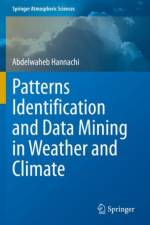av Abdelwaheb Hannachi
1 659,-
Advances in computer power and observing systems has led to the generation and accumulation of large scale weather & climate data begging for exploration and analysis. Pattern Identification and Data Mining in Weather and Climate presents, from different perspectives, most available, novel and conventional, approaches used to analyze multivariate time series in climate science to identify patterns of variability, teleconnections, and reduce dimensionality. The book discusses different methods to identify patterns of spatiotemporal fields. The book also presents machine learning with a particular focus on the main methods used in climate science. Applications to atmospheric and oceanographic data are also presented and discussed in most chapters. To help guide students and beginners in the field of weather & climate data analysis, basic Matlab skeleton codes are given is some chapters, complemented with a list of software links toward the end of the text. A number of technical appendices are also provided, making the text particularly suitable for didactic purposes.The topic of EOFs and associated pattern identification in space-time data sets has gone through an extraordinary fast development, both in terms of new insights and the breadth of applications. We welcome this text by Abdel Hannachi who not only has a deep insight in the field but has himself made several contributions to new developments in the last 15 years. - Huug van den Dool, Climate Prediction Center, NCEP, College Park, MD, U.S.A.Now that weather and climate science is producing ever larger and richer data sets, the topic of pattern extraction and interpretation has become an essential part. This book provides an up to date overview of the latest techniques and developments in this area. - Maarten Ambaum, Department of Meteorology, University of Reading, U.K.This nicely and expertly written book covers a lot of ground, ranging from classical linear pattern identification techniques to more modern machine learning, illustrated with examples from weather & climate science. It will be very valuable both as a tutorial for graduate and postgraduate students and as a reference text for researchers and practitioners in the field. - Frank Kwasniok, College of Engineering, University of Exeter, U.K.


